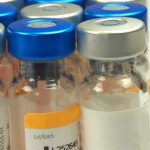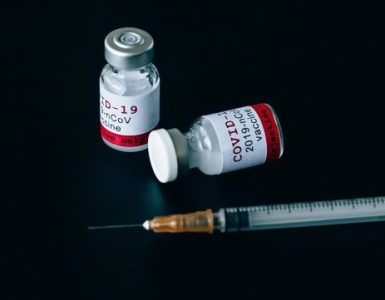 Despite promoting its benefits, the Centers for Disease Control and Prevention announced that the flu vaccine has been largely ineffective this season.
Despite promoting its benefits, the Centers for Disease Control and Prevention announced that the flu vaccine has been largely ineffective this season.
The vaccine was mostly ineffective for people 65 and older, partially explaining why the season’s hospitalization and death rates have been near record highs.
“We know that any vaccine, including flu vaccines, is less effective as you get older,” Joe Bresee, chief of the epidemiology and prevention branch in the CDC’s influenza division, told USA Today. “We often see lower effectiveness in people over 65, though not always.”
“Everyone at CDC’s Advisory Committee on Immunization Practices meeting was scratching their heads over this,” William Schaffner, chair of preventive medicine at Vanderbilt University’s School of Medicine, told the national newspaper, adding that it’s still worth getting vaccinated.
“We obviously need a new and better vaccine but this is the one we have now,” he concluded. “It’s still prevented many hospitalizations and deaths.”
According to the CDC’s Weekly Morbidity and Mortality Report released on Thursday, the vaccine translated to a 56 percent lower chance of seeking treatment for the flu. Those 65 and older fared much worse, receiving only 27 percent effectiveness against the vaccine’s three strains—the worst level in about a decade.
CDC officials noted that the oldest age group’s response to this season’s vaccine was puzzling, particularly for one strain of influenza A—known as H3N2.
“Part of it is they are elderly and they respond less vigorously to vaccines. But it appears that some of the people, at least, developed a less robust response to this particular antigen,” Bresee told Reuters about the H3N2 component of the flu vaccine.
“Why that is, I don’t think we know yet. We’re looking at it closely,” he said.
The CDC’s current estimates are based on studies of almost 2,700 children and adults enrolled in the U.S. Influenza Vaccine Effectiveness Network between December 3 and January 19. The CDC said the estimates could be revised by the end of the flu season, when they are able to measure a larger sample size.
CDC noted that a vaccine’s effectiveness is based on a number of factors including the virus type, age, and the particular flu season, combined with in an individual’s personal immune system.
CDC officials have noted that both the federal government and private companies are currently working to produce better vaccines.
In November, Novartis won U.S. Food and Drug Administration approval for a new production process that grows the vaccine in animal cells, instead of live chicken eggs. The Swiss drug maker said the new process is quicker and more reliable, potentially guarding against the onset of a rapidly spreading epidemic.
In December, the FDA approved a groundbreaking new flu shot from GlaxoSmithKline that protects against four strains of seasonal flu, instead of the typical three strains and last month, the FDA approved the first gene-based flu vaccine, which was developed by the private company Protein Sciences Corp. The new type of vaccine uses genetic engineering to grow segments of the virus in insect cells.
Source: redOrbit

















